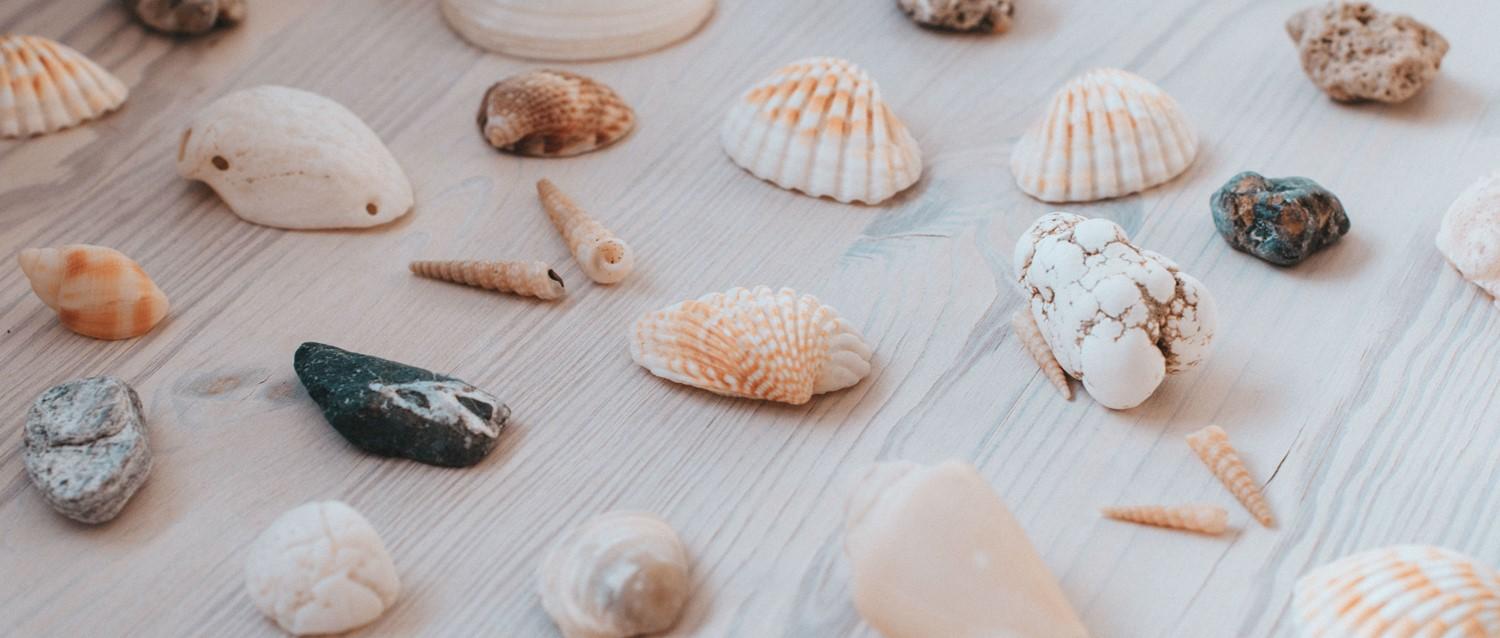
Why you always seem to get sick on holiday
Peer reviewed by Dr Sarah Jarvis MBE, FRCGPLast updated by Léa SurugueLast updated 19 Apr 2018
Meets Patient’s editorial guidelines
- DownloadDownload
- Share
- Language
- Discussion
Falling sick on holidays or weekends sound familiar? Some health experts refer to this condition as leisure sickness. It could be linked to the way we manage our work stress and approach our professional/private life balance.
In this article:
Every Thursday for the past month, Audrey Vaugrente, 27, has come down with a debilitating migraine. Her symptoms worsen all through Friday, leaving her in a painful state and unable to do much when the weekend finally comes. On Monday morning, however, the problem usually goes away.
"I've been spending my weekends locked in my home. I usually like to exercise during my free time, but this has not been possible recently. Miraculously, the migraine seems to fade away on Sunday evening," she says.
Vaugrente's example is by no means unique. Chances are we all know a friend who always comes down with flu-like symptoms or with other painful conditions when taking time off work, when it's not ourselves who end up suffering from this strange affliction.
Continue reading below
Leisure sickness
The phenomenon has attracted a lot of media attention over the years, but the most consistent research on the topic is more than 15 years old. Ad Vingerhoets, professor of clinical psychology at Tilburg University (Netherlands), did a study to explore the prevalence and roots of the condition, which he and his colleagues decided to call 'leisure sickness'.
They worked with a representative Dutch sample (1,128 men and 765 women), asking participants whether they recognised themselves in a description of leisure sickness, as well as questions regarding symptoms, onset, duration, workload, and leisure activities. They found out that 3.6% and 3.2% of men recognised themselves in the descriptions, on weekends and holidays, respectively. For women, these percentages were 2.7% and 3.2%, respectively. Symptoms varied from fatigue to muscular pains, nausea and, as in Vaugrente's case, migraine. Viral infections were often reported during the holidays.
"We identified a group of individuals who, just when they take breaks from work (during the weekend or, especially the first days of vacation), develop health complaints. This contrasts sharply with the virtual absence of symptoms during periods of work," Vingerhoets points out.
But does it exist?
Back to contentsHowever, these results have not been well accepted by all health professionals. The question of whether this is a real medical condition with physiological origins, whether it is linked to psychological issues, or if falling sick on holidays is merely a coincidence for most people, has been a matter of controversy.
One of the issues is that no other large, rigorous study has been conducted since Vingerhoets worked on the topic. While his research offered interesting clues, it was based on self-reporting by participants who assessed their health retrospectively, making these findings limited.
Continue reading below
What may be happening?
Back to contentsAt this stage then, only hypotheses can be given about why leisure sickness develops. One possibility is that people with very busy jobs become more aware of their bodily sensations during leisure time.
"To be aware of our pain and fatigue, it's necessary to pay attention to our body. Our brain has limited information processing, so if you are very busy you tend to ignore its signals until you take a break," says Vingerhoets.
This explanation only works for less intense sensations, like fatigue or vague pains. Nobody can ignore a full-blown migraine, no matter how much else they have going on.
The other plausible option is that physiological processes linked to stress play a key role in the development of these health problems. People who work a lot have higher levels of the stress hormone adrenaline, not only during working hours, but also during rest periods, when they don't need it. The consequence is a hormonal imbalance in the body, resulting in a weakened immune system, and vulnerability to infection.
More recently, research specifically into 'weekend migraine' has been done, looking at people who always seem to come down with these debilitating headaches when they take time off after a period of stress. Scientists showed that a decline in stress from one day to the next was associated with the development of the problem the next day, and said that a stress reduction could thus be seen as a marker to predict the next migraine.
It's also possible that a mix of this happening, coupled with environmental factors, could be the answer. It's clear, for instance, that lifestyle changes which are characteristic of leisure time (such as use of excessive alcohol or drugs, different sleep patterns, more or less coffee intake), play a part in our well-being.
Can a little stress be good for us?
Back to contentsAlthough there might be a lack of consensus on leisure sickness among health professionals, the condition has the merit of opening up a discussion about stress, what purpose it serves, and whether being just a little bit stressed, like one may be during work hours, may be a good thing.
Scientists have investigated various ways in which stress can be beneficial for the health and shown that it can foster what they call 'toughness'. Toughness essentially means that people are able to manage well when faced with difficulties.
"It parallels developing physical fitness. Without exercise, fitness does not improve. However, it is possible to exercise too much, and break the body down instead of strengthening it. Psychological toughness is thought to develop in a similar way. Exposure to too many stressors without time for recovery in between can be overwhelming and disrupt the development of toughness. In contrast, exposure to some stressors - not too many, but not none - promotes toughness and an ability to deal with future stress," Mark Seery, faculty expert on stress and coping at the University at Buffalo (USA), says.
So in some ways, being confronted with stress can help boost mental and physiological well-being, whether it's during work hours or leisure time.
"What we can wonder then is if we are in a period without stress, is that necessarily a bad situation? It would not contribute to developing toughness, but it does not mean it's having negative health impacts, like leading to leisure sickness. What we can hypothesise however is that if someone transitions from a hectic daily life, they could feel largely out of control," Seery points out.
Since research has shown that feeling in control is a positive thing, having a lot of empty time with nothing much to manage may be problematic, and linked to some of the poor health symptoms seen in some of the people with leisure sickness.
Continue reading below
Tips to manage stress in preparation for your days off
Back to contentsRecognise the problem
The first thing is to become aware of the situation. Leisure sickness may be a way of telling the body to strive for more balance between working and leisure activities. Realising that no one can do it all and that there is a need to share your time better between work and leisure is the first step.
Exercise regularly
To actively combat leisure sickness, getting regular physical exercise is crucial.
"People will have different ways of dealing with stress. Some patients often find that self-care techniques, such as starting any form of exercise activity, can help," Professor Helen Stokes-Lampard, Chair of the Royal College of GPs, points out.
In his study of leisure sickness, Vingerhoets hypothesised that physical exercise and a workout immediately after work, especially on the last day before the break, may facilitate the 'unwinding process' - the physiological transition from work to rest.
Changing your lifestyle - but no radical change
The holidays or the weekend might be a good time to start introducing positive lifestyle changes, including more sleep, and taking more time to eat and to prepare balanced meals. However, holidays are also a time when people adopt more relaxed attitudes towards their diets or alcohol intake. Being aware that this can have a negative impact on your health is important to boost well-being when off work.
For people with migraines, radically changing their sleeping patterns may nevertheless not be a great idea. Research has suggested that too much or too little sleep can trigger a migraine. If you are prone to these headaches, regular sleep patterns, sleeping enough throughout the week (7 or 8 hours) but also resisting the temptation of a lie-in, may help.
Seek advice from a health professional
Individuals who worry about falling sick during their time off can turn to medical support.
"If a patient is concerned about the long-term impact of stress leading to problems with their health and well-being, they should seek advice from a healthcare professional," says Stokes-Lampard.
Some kind of psychological support may be helpful, and specific forms of cognitive behavioural therapy may benefit some people. Rational Emotive Therapy, which is aimed at restoring balance in life with more attention and appreciation for the social environment in general, and the family in particular, may be an interesting approach.
Patient picks

Travel and vaccinations
What side effects are associated with the yellow fever vaccine?
Yellow fever is endemic to many countries in Latin America and Africa and can often be fatal. Vaccination is currently the best protection against this deadly disease - but what are the risks?
by Léa Surugue

Travel and vaccinations
How to have a healthy flight
The travel bug has now affected so many people it has become something of a modern epidemic. According to the Office for National Statistics, there were an astonishing 73 million visits overseas by UK residents last year. But how can you stay healthy while flying, not just on a long-haul flight but on a short-hop trip as well?
by Dr Hilary Jones, MBE
Continue reading below
Article history
The information on this page is peer reviewed by qualified clinicians.
19 Apr 2018 | Latest version

Ask, share, connect.
Browse discussions, ask questions, and share experiences across hundreds of health topics.

Feeling unwell?
Assess your symptoms online for free
Sign up to the Patient newsletter
Your weekly dose of clear, trustworthy health advice - written to help you feel informed, confident and in control.
By subscribing you accept our Privacy Policy. You can unsubscribe at any time. We never sell your data.